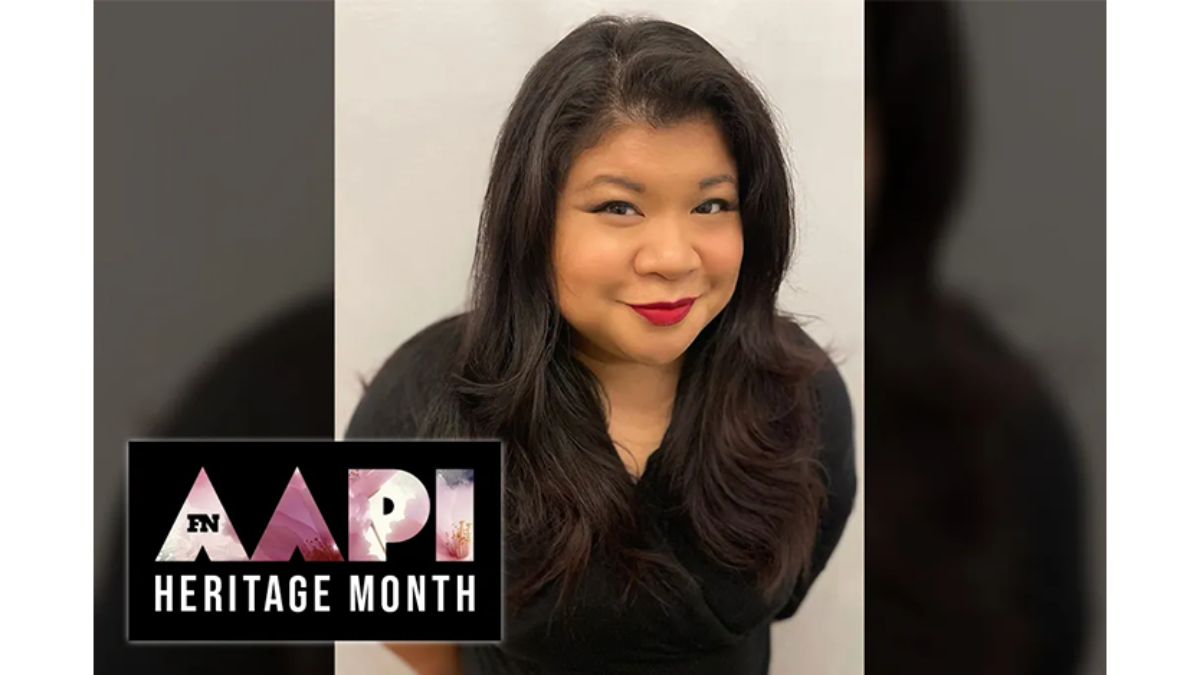AAPI Heritage Month: How Advocacy and Allyship Can Help Stop Asian Hate, According to Public Wise’s Christina Baal-Owens

For AAPI Heritage Month, FN is spotlighting Asian American and Pacific Islander executives, entrepreneurs and designers as part of its ongoing commitment to champion diversity across all areas of the footwear business.
Behind some of the country’s most outspoken A-list advocates for the Asian American-Pacific Islander community — think actress and producer Lucy Liu, two-time Olympic medalist Michelle Kwan, author and TV host Padma Lakshmi — is Public Wise executive director Christina Baal-Owens.
Three weeks ago, Baal-Owens — who lives in New York and is of Filipino descent — invited Kwan as well as former U.S. Secretary of State Hillary Clinton, both of whom she worked with on the latter’s 2016 presidential campaign, to appear at a virtual fundraiser dubbed #AAPIWomenStrong: Organizing Beyond a Hashtag. The event, which also saw the likes of TV personality Tan France and actor George Takei, was centered on the disproportionate impact of the COVID-19 pandemic on AAPI women.
“This is an incredibly difficult time to be an AAPI woman,” Baal-Owens told FN. “We’re in a very specific place in history where, beyond suffering from the pandemic, we’re facing this extra layer of misogyny and racism.”
Out of the nearly 3,800 hate incidents against Asians that were recorded by Stop AAPI Hate, almost 70% of those incidents — including verbal harassment, shunning and physical assaults — targeted women. In contrast, men made up 29% of reported incidents, while trans and gender nonbinary individuals represented 2% and those who preferred not to identify comprised 1%.
AAPI women’s empowerment is only one of the areas of focus for Baal-Owens, who has close to two decades of experience working in nonprofits, advocacy and government. The executive began her career in the labor and immigrants’ rights movements, then moved on to the New York Immigration Coalition where she ran one of the largest voter registration programs for newly naturalized immigrants in the U.S. She also served in the political departments of two major labor unions, the Retail, Wholesale and Department Store Union and 32BJ SEIU, as well as worked as the assistant comptroller for community affairs at the New York State Comptroller’s office.
“Coming from my background, a lot of what I believe in is building voting power and civic engagement,” said Baal-Owens. “We need to make sure that we’re doing outreach to these folks both in election years and in years when it’s not so transactional.”
According to data from the AAPI Victory Fund, turnout among Asian American-Pacific Islander voters advanced 45.8% in 2020 compared with 2016. Overall voter turnout in 2020, for comparison, improved 11.9% versus 2016.
Still, Baal-Owens believes more can be done to build on that in the next election cycle.
“One of the things that really came up from Asian voters who chose not to vote in 2020 was the lack of outreach or the feeling that they were not cared about or not even considered,” she explained. “So one of the things that we’re looking at — and this [#AAPIWomenStrong] event really fits into that — is: How do we talk to potential voters even in non-election years and make sure that their voices are uplifted, make sure we know what the issues are and communicate that to our government officials. How do we keep encouraging engagement going forward?”
She added, “Really continuing to do that will give us a voice. We need to make sure that we get elected officials and folks who make policy that care about us, that look at the issues and see how they affect us.”
One big piece of that puzzle, said Baal-Owens, lies in allyship — particularly within communities of color. Since attacks escalated against the AAPI community, prominent Black executives, athletes, entertainers, designers and even former President Barack Obama have emerged in solidarity against anti-Asian hate.
But this support should come as no surprise: Black and Asian American people have historically come together in America’s struggle for racial justice, from Black leaders opposing U.S. colonization during the Philippine-American War at the turn of the 20th century to more than a dozen AAPI organizations pooling resources to create a toolkit aimed at helping bolster the Black Lives Matter movement.
“All of us are facing racism, and the way that this is going to end is if we work together to combat that,” Baal-Owens said. “[We need to] build our own power and speak back in this moment — not be afraid to talk about the issues that are affecting us.”
The executive also pointed out the unexpected link between AAPI Heritage Month and Mental Health Awareness Month — both observed in May. According to Mental Health America, Asian Americans are the racial group that is least likely to seek mental health services, and some estimates have suggested that Asian Americans are three times less likely to get treatment or help than other racial groups in the U.S.
“Within our community, there’s often a stigma about mental health services and support,” Baal-Owens said. “I think, now more than ever, we need as a community to break that stigma for ourselves and for future generations to know that it’s OK to not be OK. It’s OK to get help so we can be who we need to be and who we want to be for our families and our community.”